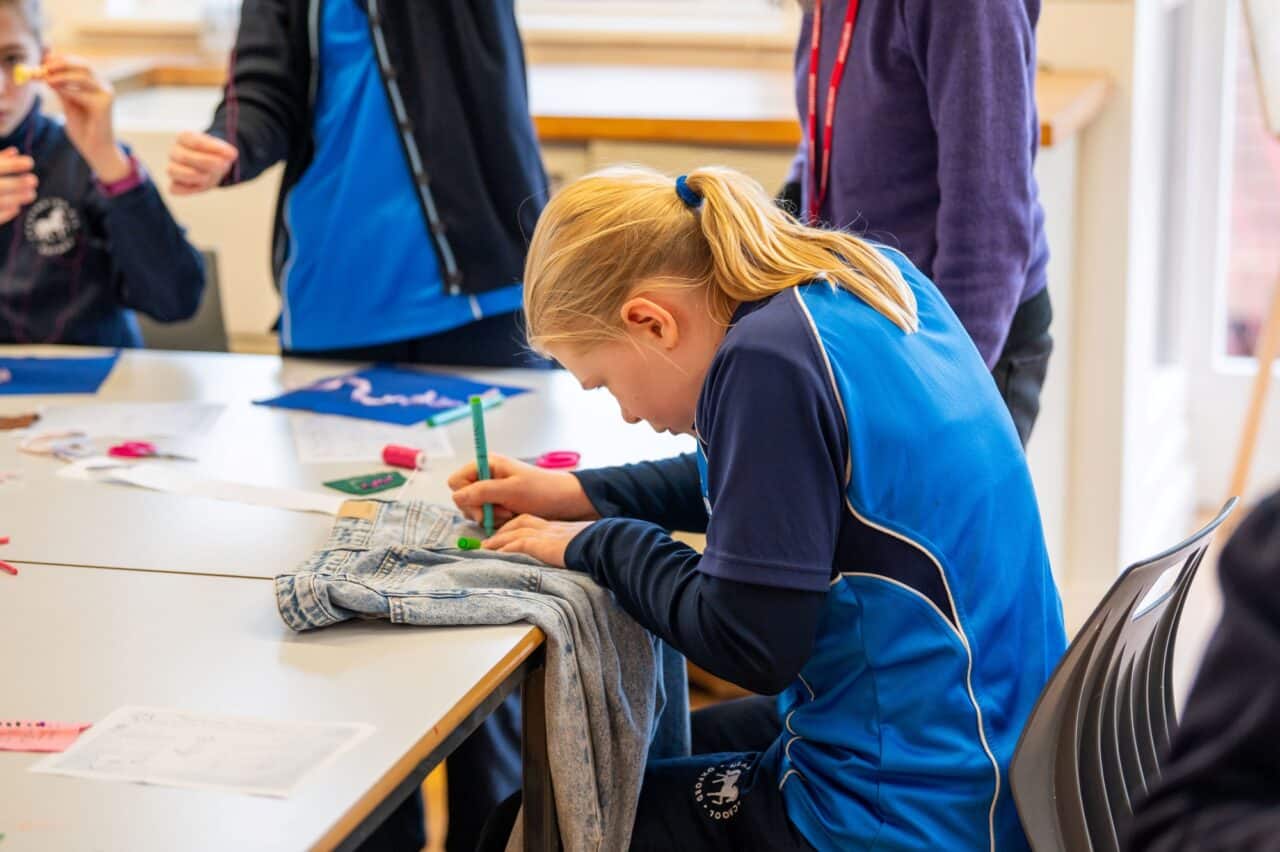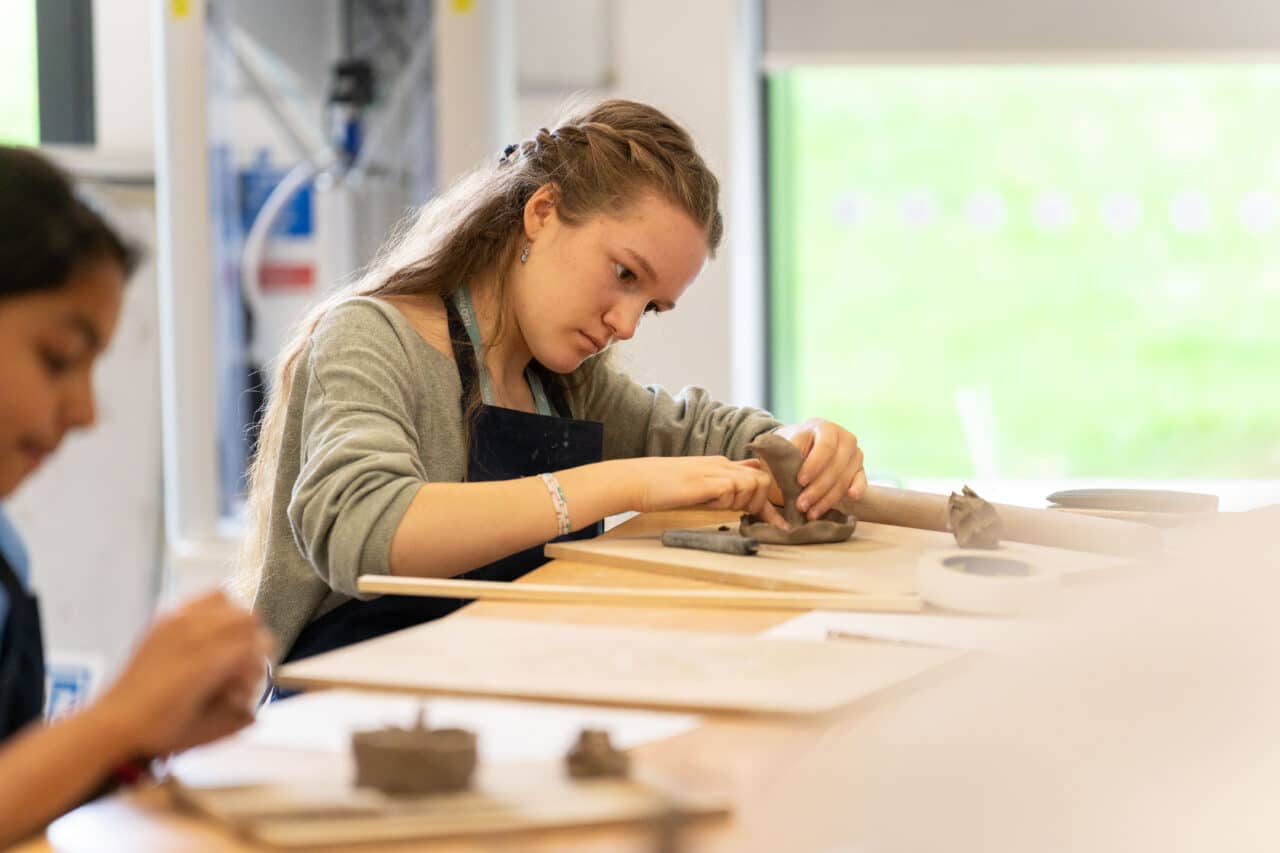The apprenticeship route
All schools tend to say the same thing: that the individual matters.
But if that were really true then the evidence would be in the variety of the things that students do once they leave. Unfortunately, there are some schools for whom the school leaver’s page presents a disappointingly narrow read. Not here. I would encourage any prospective or current parent, student or ‘interested party’ to take a look at Headington Rye leaver’s page. As someone who spends a lot of my time getting Year 13s ready for ‘leaving’, this is one of the areas of school I am most proud of.
Our girls don’t just go to the same half dozen universities to do the same half dozen subjects.
Some successfully audition for dance conservatoires. Some take up Art foundation courses. Some venture into entrepreneurship while others pursue careers in media, sports or the charity sector.
But, there is a new kid on the block: apprenticeships. The Economics and Business Department finds itself at the sharp end of this new wave of enthusiasm.
Admittedly, the numbers are still small (one per year for the last three years, and there’ll be another one this year) but girls are beginning to look at the apprenticeship route more favourably.
Part of this is that many apprenticeship routes are now offering university degrees or professional qualifications as part of their structural training. Apprenticeships have always offered the lure of earning money straight from school – ‘getting a job’ and working immediately. Now you can also get a qualification that stands up against your university-plodding peers.
There’s also a new element, which is that the options – in my view – are just getting better and better.
For example:
· A four-year degree apprenticeship at Goldman Sachs will net you a degree in Applied Finance with Queen Mary’s University, while earning £30k straight from school. Plus, you’ll be working inside the second largest investment bank in the world. JP Morgan – the world’s largest investment bank – offer their own degree apprenticeship pathway too; theirs is aligned with Exeter University.
· If capitalist giants are not quite your thing, a four-year degree apprenticeship with the Government Economic Service will get you a degree in Professional Economics from the University of Kent, whilst earning £29k a year. And, you’ll have a foot in the door for a job in the civil service straight after.
· It’s not just economics and finance leading the way though. There are plenty of STEM and IT based apprenticeships pathways as well. Applying to the JLR factory in Gaydon means that you could receive a Degree in Digital and Tech solutions from the University of Warwick whilst being part of that quintessential British brand.
As stated above, three Headington Rye economists have enrolled on apprenticeship courses in the last three years. This year we are delighted to report that another Year 13 student has been accepted onto the degree apprenticeship for retail banking with Barclays bank. Taking this route means she has had an enormous amount of exposure to the real-world of job interviews already – travelling down to head offices in London, mock interviews with our Headington Rye Senior Leadership Team, as well as being interviewed by an AI bot during one of the processes. The 21st century world of work indeed!
The three recent apprentices all have great stories to tell.
Back in 2022, Millie Mahoney joined the Ernst and Young (EY) tax apprentice programme. Within a year, she reported that she had 20 clients and loved her workplace split between London and Reading.
In conversation with me, she said: “Life at work has been great and I definitely do not regret not going to university! I am on the Transfer Pricing team within tax, so I am in a very international market which is awesome.
“I am currently working for about 20 clients, who all require me to do different things, so no boredom here for sure!
“My team is lovely in the Reading office – one of the senior managers is a father to a daughter at Headington Rye, so he has slightly taken me under his wing and helped me settle in to working life, which has been very helpful.
“The exams are seriously hard but at the end of four years I will come out as a fully qualified chartered accountant (under ICAEW)”.
Ali Hobley joined the tax apprenticeship with Deloitte in 2023. Like Millie, she is aiming to become fully qualified chartered accountant (under ACCA). Ali was recently featured in our Headingtonian magazine.
In it, Ali said: “I decided to go with the offer of a Deloitte apprenticeship because of the emphasis on taking care of their employees and supporting them towards the qualification exams. Also, accounting is a versatile qualification that would allow me to work anywhere in the world!
“By doing an apprenticeship, I get paid to receive an internationally-valued qualification whilst also having a sense of independence, and be further ahead in the business ladder after three years than a graduate.
“Working for Deloitte has been a fulfilling experience for me, but it hasn’t come without its share of challenges. One of the difficulties I’ve faced is adapting to the company’s office culture … it’s essential for me to appear professional and confident at all times while working, as it’s not just a practice session but a real-life situation!
“Collaboration and teamwork are vital components of completing any project at Deloitte. Working alongside a team has helped me enhance my social skills, yet it has also been challenging as it pushes me out of my comfort zone. Taking responsibility for your work, demonstrating your commitment, and communicating effectively with the team are all crucial aspects of being involved in any workplace.”
Finally, Emelia Yap joined the Neilsen management apprenticeship programme in 2023. As a hybrid worker, she varies her working week between NIQ’s UK Head Office in Oxford, working from home and attending university. She is working towards a degree in Business and Management Practice with Oxford Brookes University.
Recently, Emelia blogged about her experiences on LinkedIn as part of National Apprenticeship Week. She said: “I’m currently in my second year, working in the Commercial Inbox team, after spending my first year in the Impulse Customer Success team.
“Over the past two years, I’ve had the opportunity to develop valuable skills, gain hands-on experience and work alongside some incredible colleagues who have supported my growth.
“A degree apprenticeship is a unique and rewarding experience—it’s a chance to learn, earn, and apply knowledge in real-world situations. I’m excited to see what the rest of my apprenticeship brings and how I continue to grow in my career!”
Are there any downsides?
Degree apprenticeships are clearly not suitable for every industry. Finance, STEM and IT seem to be the largest providers of degree apprenticeships, but there are relatively few in large industries such as hospitality, healthcare and the arts.
There is – dare I say it – still some snobbery about apprenticeship routes too. In making it part of job to espouse the very genuine value of these pathways, one challenge has been “yes – but will these guys go onto to get the ‘front of house’ roles rather than the ‘back of house’ roles?” ‘Front of house’ presumably meaning visible positions tied to the core strategy and decision-making of the business – CEOs, CIOs etc – and ‘back of house’ presumably meaning more support and operational roles.
To that I say, apprenticeships are evolving and many programmes now offer excellent career prospects. The key is in choosing the right programme and the right company.
For me, modern degree and professional apprenticeships are every bit a marker of intelligence, ambition and long-term potential – excellent grounding for a future CEO. They have the added benefit for young women like Millie and Ali that, by the age of 22, they will be qualified accountants, have four years of work experience (and pension contributions) and be ready to face the world with confidence.
The world is shifting away from an obsession with formal degrees as the only marker of success. Employers now emphasize skills, experience, and results over where (or if) someone went to university. Apprenticeships deliver just that.



